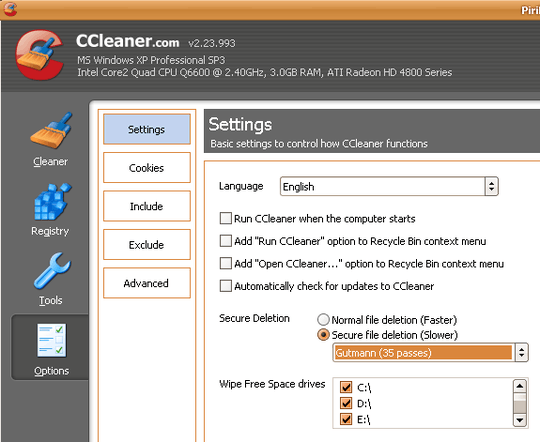15
5
I know that on the windows operating system, when you delete a file it's still recoverable. I'd like to avoid simply paving the harddrive with zeros as I would like to keep my OS installation as is, but is there a way to truly delete files that have been previously deleted?


Didn't know Eraser had that option - good choice! – Dan Walker – 2009-09-01T20:41:05.203
Thank you, Eraser looks wonderful. I just wiped a whole load of files from my computer and was about to post a question, when whola! there you go, there's an answer just right there! – ymasood – 2009-09-01T22:28:59.010